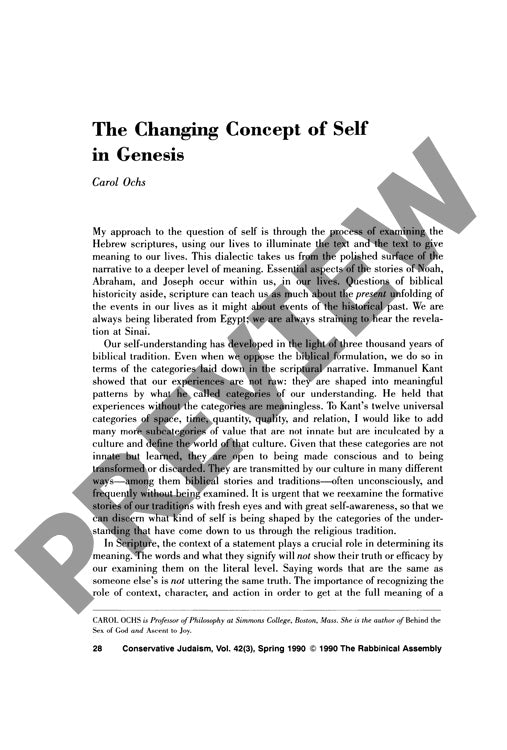The Changing Concept of Self in Genesis
Couldn't load pickup availability
The Book of Genesis reveals a sophisticated evolution in how ancient peoples understood individual identity and divine connection, challenging modern assumptions about biblical concepts of selfhood. Through close analysis of the Noah, Abraham, and Joseph narratives, three distinct stages of self-formation emerge that parallel Hillel's foundational teachings in Ethics of the Fathers. A hermeneutical approach, informed by contemporary experience, illuminates how Abraham exemplifies the initial formation of selfhood through direct divine relationship ("If I am not for myself who will be?"), while Joseph represents a more mature self-understanding through family reconciliation and recognition of divine providence ("If I am only for myself, who am I?"). The narratives present two primary pathways to divine knowledge: direct encounter with God and reconciliation with family members. Unlike Western individualism's autonomous self, Genesis portrays identity as fundamentally relational, existing in dynamic engagement with both divine and human others while maintaining an essential core. Joseph's model of discovering God through everyday experiences and family healing emerges as particularly relevant for contemporary spiritual development, offering a relational framework for understanding human identity and divine connection.

More Information
-
Physical Description
-
Publication Information
Published 1990
ISBN
-
Publication Credits
Carol Ochs

